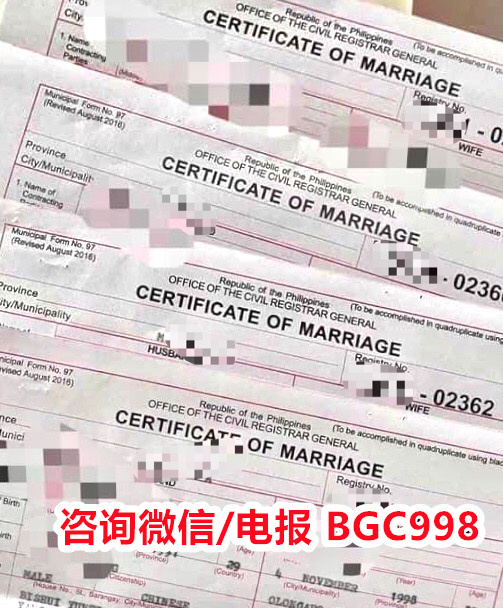How long does it usually take to process a Philippines marriage visa (13A)?

What are the financial requirements for obtaining a Philippines marriage visa (13A)?
What are the main eligibility requirements for applying for a Philippines marriage visa (13A)?
To qualify for a Philippines marriage visa (13A), the primary requirement is that the applicant must be legally married to a Filipino citizen, and the marriage must be recognized under Philippine law. A valid marriage certificate issued by the Philippine Statistics Authority (PSA) or a marriage certificate registered with the Philippine Embassy/Consulate (if married abroad) is required. The foreign spouse should also possess a valid passport with a sufficient validity period, usually at least six months. Additionally, the Filipino spouse must provide proof of citizenship, such as a birth certificate or a valid Philippine passport. Financial capacity of the foreign spouse is another requirement, showing that he or she can support the family. A police clearance from the applicant’s home country, as well as a clearance from the National Bureau of Investigation (NBI) in the Philippines, are also required to demonstrate good moral character. Meeting these eligibility requirements is crucial before proceeding with the Philippines marriage visa application.

How long does it usually take to process a Philippines marriage visa (13A)?
The processing time for a Philippines marriage visa (13A) varies depending on the completeness of the applicant’s documents and the efficiency of the Bureau of Immigration at the time of submission. Typically, applicants should expect a timeline of about three to six months from the initial submission of the requirements to the final approval. The 13A visa is first issued on a probationary basis, valid for one year. After the probationary period, the applicant can apply for conversion to a permanent resident visa, provided that the marriage remains valid and the couple continues to live together. Delays may occur if documents are incomplete, improperly authenticated, or if there is a backlog at the immigration office. To avoid unnecessary delays, it is recommended that applicants prepare their paperwork carefully and, where possible, seek guidance from immigration professionals who are experienced with the Philippines marriage visa process.

Can a holder of a Philippines marriage visa (13A) work in the country legally?
Yes, one of the key benefits of a Philippines marriage visa (13A) is that it grants the foreign spouse the right to reside permanently in the country, and unlike many other visa types, it also allows the holder to engage in employment or business without securing a separate work permit. This makes it especially attractive for foreigners who want to establish a long-term life with their Filipino spouses while also having the ability to earn an income. However, while the law provides this right, certain employers or industries may still require additional permits or documentation. For example, regulated professions such as medicine, law, or engineering may impose nationality restrictions or require professional licenses. Still, in most cases, the 13A visa provides a straightforward pathway for foreigners to legally integrate into the workforce or establish a business. This is one of the most practical aspects of holding a Philippines marriage visa compared to other visas with more limitations.

What happens if a marriage is annulled or the Filipino spouse passes away while holding a Philippines marriage visa (13A)?
In the case of annulment or legal separation, the foreign spouse’s entitlement to hold a Philippines marriage visa (13A) is usually revoked, since the visa’s validity is directly tied to the subsistence of the marriage. The Bureau of Immigration may issue an order for cancellation of the visa, and the foreigner may be required to change status to another visa type or depart the Philippines. However, if the Filipino spouse passes away, the situation is slightly different. The foreign spouse may, in some circumstances, be permitted to retain resident status if the couple had been married for a significant period, especially if there are children from the marriage. Each case is reviewed individually by the Bureau of Immigration. It is always advisable for the foreign spouse to inform immigration authorities immediately about any changes in marital status, as failure to do so may result in overstaying or complications with legal residency under the Philippines marriage visa rules.

What is the difference between a probationary and permanent Philippines marriage visa (13A)?
When applying for a Philippines marriage visa (13A) for the first time, the applicant is usually granted a probationary status valid for one year. During this probationary year, the Bureau of Immigration essentially reviews whether the marriage is genuine and if the foreign spouse complies with Philippine laws and visa conditions. After completing the one-year probationary period, the applicant may apply for the conversion to a permanent 13A visa. Once granted permanent status, the visa no longer needs annual renewal, though the holder is still subject to annual reporting requirements to the Bureau of Immigration. This two-step system ensures that only legitimate marriages receive long-term residency privileges. The probationary visa is a safeguard against fraudulent applications, while the permanent visa reflects the Bureau’s confidence in the authenticity of the marital relationship. Applicants should therefore prepare supporting documents such as joint financial accounts, proof of cohabitation, or children’s birth certificates to strengthen their case when upgrading from probationary to permanent status.
Is there an age requirement for a foreigner to apply for a Philippines marriage visa (13A)?
There is no strict minimum age requirement beyond the general legal marriage age recognized in the Philippines. For marriages to be valid under Philippine law, the couple must comply with age and consent requirements. For example, the legal age of marriage in the Philippines is 18, but individuals under 21 must obtain parental consent, and those under 25 may be required to seek parental advice. Therefore, as long as the marriage is legally valid and properly registered, the foreign spouse can apply for a Philippines marriage visa (13A), regardless of age. However, it should be noted that immigration officers do look at the authenticity of the relationship, and in cases of significant age gaps, the authorities may scrutinize the application more closely to ensure the marriage is not one of convenience. The most important factor is that the marriage must comply with Philippine legal requirements and be properly documented for visa eligibility.

Are dependents such as children included in a Philippines marriage visa (13A) application?
Yes, dependent children can be included in a Philippines marriage visa (13A) application, provided that they are unmarried and below 21 years of age. In such cases, they may be granted derivative visas tied to the principal applicant. The children must either be biological children of the Filipino spouse or legally adopted under Philippine law. Each dependent will need to submit supporting documents such as birth certificates, passports, and in the case of adopted children, legal adoption papers. Once granted, their visa status is linked to the validity of the principal holder’s marriage visa. It is worth noting that once the children reach the age of 21 or marry, they will lose their dependent status and must apply for a separate visa to remain in the Philippines. Including dependents in the application is often more cost-effective and efficient than applying separately, and it ensures that the family remains legally unified under the Philippines marriage visa framework.
What are the financial requirements for obtaining a Philippines marriage visa (13A)?
While there is no fixed income threshold for the Philippines marriage visa (13A), applicants must demonstrate financial capacity to support themselves and their families while living in the Philippines. This is generally proven through bank statements, employment contracts, pension records, or other documents that reflect stable income or savings. The Bureau of Immigration may request proof that the foreign spouse is not likely to become a public burden. Although the requirement is not as rigid as in some other countries’ spousal visas, it is still an important factor in assessing the application. Showing evidence of joint financial arrangements, such as shared bank accounts, real estate ownership
针对以上话题您是否想了解更多?欢迎联系我们咨询
English/Tagalog Inquiries :
WeChat : dpylanayon
Telegram : @Diadem_Pearl
EMAIL: dplanayon.royalewonders@gmail.com
VIBER:+ 63 939 526 6731 / +63 9176523432
WhatsApp / PHONE:+639176523432
中文咨询
微 信:BGC998 电报@ BGC998 或 微信:VBW333 电报@VBW777
菲律宾998VISA是菲律宾MAKATI 实体注册公司,在菲律宾已经有超过19年服务经验,客户隐私安全保护服务可靠,业务提交可以安排工作人员上门取件或前往我们办公室提交。菲律宾政策时常变化,且信息发布有时间差,有需要相关业务最新资讯欢迎联系我们。
欢迎关注我们的电报TELEGRAM频道
998官方资讯频道 @FLBYM998
日常案例分享频道 @FLBYM998CASE